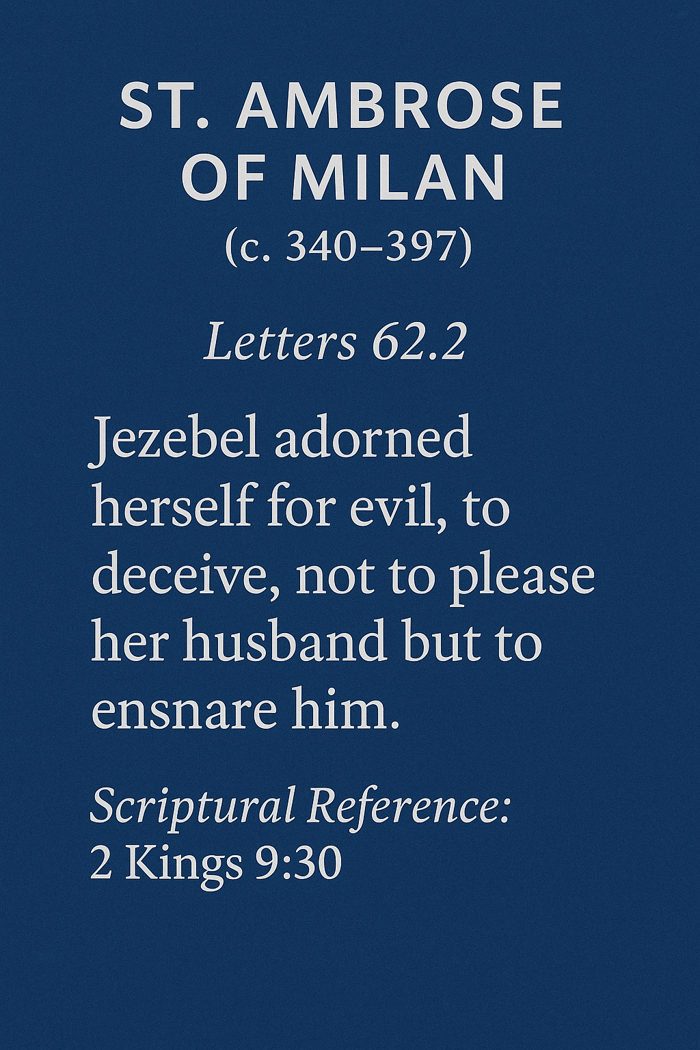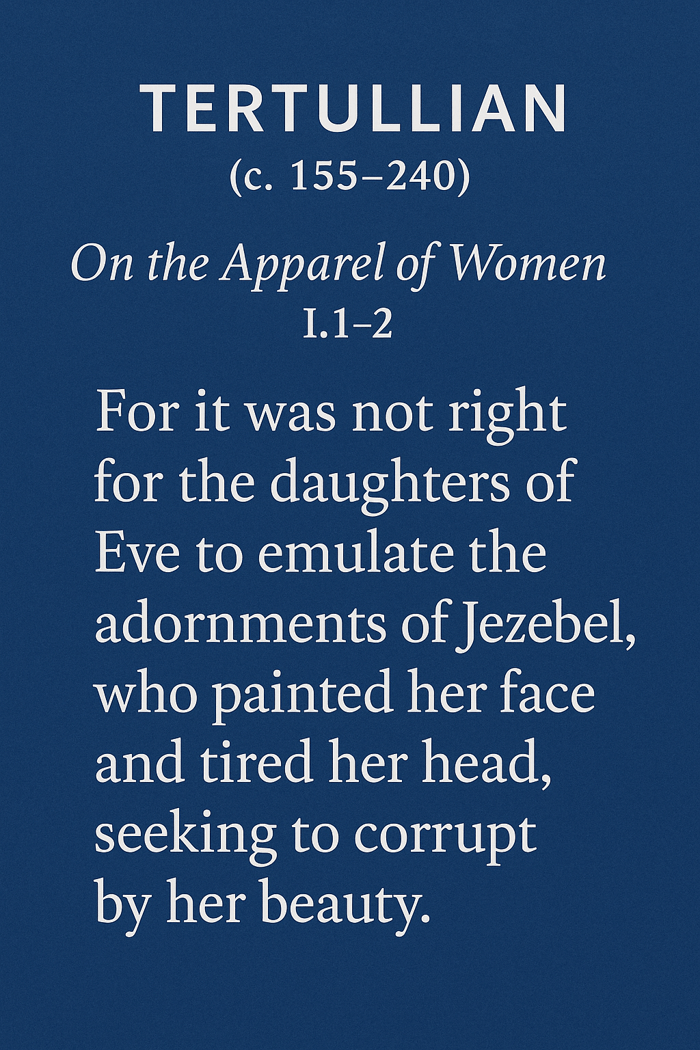Table of Contents
Who was Jezebel According To The Scriptures?
The name Jezebel is synonymous with evil, treachery, manipulation, and witchcraft. The woman Jezebel embodies all of these qualities, partly due to her worship of Asherah, for the Scriptures declare that those who worship idols become like them (Psalm 115:4–8; Psalm 135:15–18). As a worshipper of Asherah (1 Kings 16:31–33), a Canaanite deity that appears in later Greek culture as Aphrodite, Jezebel used her charm and manipulation to usurp the authority of her husband, King Ahab, so that she could secure Naboth’s vineyard—even arranging his death (1 Kings 21:5–16).
Because of her witchcraft and idolatry, the prophecy was given that Jezebel would be judged (2 Kings 9:22), and her violent death was foretold and fulfilled (1 Kings 21:23; 2 Kings 9:30–37).

According to 1Kings 16 and 2Kings 9:
- Jezebel was the daughter of Ethbaal, king of the Phoenician city-state of Tyre, and wife of Ahab, king of Israel.
- She was a Phoenician princess who married Ahab, the seventh king of the Northern Kingdom of Israel.
- In short, Jezebel was a murderer, prostitute and enemy of God.
- Jezebel in the Bible was King Ahab's wife who followed after false gods in Baal and Ashtoreth worship.
- She turned the heart of the king to idolatry in this regard and usurped her husband's authority in defiance of God's Word.
- She died a very violent and gruesome death at the hand of Eunuchs and Jehu
On the point of her usurpation of her husband's authority( a theme that is echoed against by the Apostle Paul in 1 Timothy 2:12) her idol worship lies at the center of it.
Male Priesthood was Replaced by Eunuchs & Female Priests
Biblical Design:
Exodus 28 – Priestly line established only through Aaron’s sons.
Deuteronomy 23:1 – Eunuchs excluded from Yahweh’s assembly.
Numbers 3:10 – God forbids any non-Levite male from serving.
Usurping Evidence:
| Evidence | Source |
|---|---|
| Eunuchs serving Jezebel in positions of authority | 2 Kings 9:32 – Jezebel is attended by sarisim (eunuchs). |
| Archeological parallels show female & eunuch priesthood in Phoenicia | George A. Barton – Semitic Origins (1912) |
| Astarte/Asherah worship often involved emasculation of priests | W. Robertson Smith – The Religion of the Semites (1889) |
| Jezebel’s 400 prophets are “prophets of Asherah” – not male-only | 1 Kings 18:19 |
Church Fathers on Jezebel (with Scriptural References Under Each Quote)
| Church Father / Work | Direct Quote (with Scriptural Reference below) | Context / Meaning / Interpretation |
|---|---|---|
| Tertullian (c. 155–240) On the Apparel of Women I.1–2 | “For it was not right for the daughters of Eve to emulate the adornments of Jezebel, who painted her face and tired her head, seeking to corrupt by her beauty.” Scriptural Reference:1 Kings 21:25; 2 Kings 9:30 | Condemns vanity and imitation of Jezebel’s sensual pride; warns Christian women to avoid worldly adornment. |
| Clement of Alexandria (c. 150–215) Paedagogus II.10 | “She who imitates Jezebel in adornment shall suffer her fate. For painting the face and dyeing the hair are the arts of deceit.” Scriptural Reference:2 Kings 9:30 | Jezebel symbolizes corruption of moral beauty by external artifice and vanity. |
| Origen (c. 184–253) Homilies on 1 Kings (fragment) | “Jezebel signifies the carnal soul which persecutes the prophets of God.” Scriptural Reference:1 Kings 18:4; 19:2 | Allegorical view—Jezebel represents the fleshly soul that opposes the Spirit and divine truth. |
| St. Hippolytus of Rome (c. 170–235) On the Antichrist 46 | “Jezebel, who slew the prophets, is the type of the harlot that sits upon the beast.” Scriptural Reference:1 Kings 18:13; Revelation 17:1–6 | Typologically links Jezebel to “Babylon the Great,” symbol of worldly persecution and false religion. |
| St. Ambrose of Milan (c. 340–397) Letters 62.2 | “Jezebel adorned herself for evil, to deceive, not to please her husband but to ensnare him.” Scriptural Reference:2 Kings 9:30 | Jezebel represents manipulative beauty; contrasts her vanity with Christian chastity. |
| St. Jerome (c. 347–420) Commentary on 2 Kings | “She painted her face and tired her head—what is this but the pomp of idolatry?” Scriptural Reference:2 Kings 9:30 | Interprets her adornment as symbolic of idolatry and rebellion against God. |
| St. Augustine of Hippo (354–430) City of God XVIII.21 | “Jezebel, the wicked queen, persecuted Elias; so too the Church is persecuted by those who love the world.” Scriptural Reference:1 Kings 19:2; Revelation 2:20 | Sees Jezebel as a type of worldly power persecuting the Church. |
| St. John Chrysostom (c. 347–407) Homilies on Matthew 30.3 | “The Jezebels of our day adorn their faces with paints, while neglecting the adornment of the soul.” Scriptural Reference:2 Kings 9:30; 1 Peter 3:3–4 | Applies Jezebel’s vanity to Christian life—external beauty without virtue leads to decay. |
| St. Ephrem the Syrian (c. 306–373) Hymns on Virginity 23 | “Let not the daughters of the covenant imitate Jezebel who adorned herself for wickedness.” Scriptural Reference:2 Kings 9:30 | Contrasts Jezebel’s pride with Mary’s humility and Christian modesty. |
| St. Isidore of Seville (c. 560–636) Etymologies VIII.11 | “Jezebel means ‘chaste without,’ but she was unchaste within.” Scriptural Reference:1 Kings 16:31; 21:25 | Interprets her name symbolically: outward virtue masking inner corruption. |
| St. Bede the Venerable (c. 672–735) Commentary on Revelation 2:20 | “Jezebel is the figure of the false teacher who leads servants astray with her doctrines of fornication.” Scriptural Reference:Revelation 2:20–22 | Identifies “Jezebel” of Thyatira with false teaching and moral corruption in the Church. |
| St. Gregory the Great (c. 540–604) Moralia on Job 33.23 | “Jezebel, the figure of pride, adorned herself to deceive; humility adorns herself with truth.” Scriptural Reference:2 Kings 9:30; Proverbs 31:30 | Contrasts Jezebel’s deceitful pride with the beauty of humility. |
| St. Andrew of Caesarea (c. 6th–7th c.) Commentary on Revelation 2:20 | “The spirit of Jezebel is that of deceit, which corrupts the faithful under pretense of prophecy.” Scriptural Reference:Revelation 2:20–22 | Interprets Jezebel of Thyatira as the symbol of false prophets within the Church. |
| St. Methodius of Olympus (c. 250–311) Banquet of the Ten Virgins VII.2 | “Jezebel’s beauty was her ruin; the virgin’s modesty is her crown.” Scriptural Reference:2 Kings 9:30; 1 Timothy 2:9–10 | Contrasts Jezebel’s worldly allure with the spiritual crown of modesty and purity. |

Where Does The Story of Jezebel Start in The Bible?
- The Story of Jezebel in the Bible starts in 1Kings 16 and goes all the way in sections and mentions to 2Kings 9.
- 1Kings 16 and 2 Kings 9 are both in the Old Testament.
- The New Testament does mention Jezebel in Revelation 2


Jezebel Bible Story Summary
How Did Jezebel Die?
Jezebel Usurping King Ahab's Authority 1 Kings 21
4 And Ahab came into his house heavy and displeased because of the word which Naboth the Jezreelite had spoken to him: for he had said, I will not give thee the inheritance of my fathers. And he laid him down upon his bed, and turned away his face, and would eat no bread.
5 But Jezebel his wife came to him, and said unto him, Why is thy spirit so sad, that thou eatest no bread?
6 And he said unto her, Because I spake unto Naboth the Jezreelite, and said unto him, Give me thy vineyard for money; or else, if it please thee, I will give thee another vineyard for it: and he answered, I will not give thee my vineyard.
7 And Jezebel his wife said unto him, Dost thou now govern the kingdom of Israel? arise, and eat bread, and let thine heart be merry: I will give thee the vineyard of Naboth the Jezreelite.
8 So she wrote letters in Ahab's name, and sealed them with his seal, and sent the letters unto the elders and to the nobles that were in his city, dwelling with Naboth.
9 And she wrote in the letters, saying, Proclaim a fast, and set Naboth on high among the people:
10 And set two men, sons of Belial, before him, to bear witness against him, saying, Thou didst blaspheme God and the king. And then carry him out, and stone him, that he may die.Bible Verses About Not Giving Up (Powerful)
11 And the men of his city, even the elders and the nobles who were the inhabitants in his city, did as Jezebel had sent unto them, and as it was written in the letters which she had sent unto them








